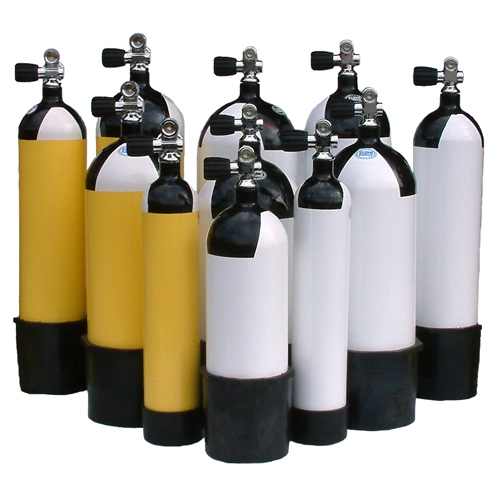 This is an area where I do have an opinion but for the purposes of this article I am going keep my own personal thoughts to myself as I am interested to hear from you, the scuba diving community.
This is an area where I do have an opinion but for the purposes of this article I am going keep my own personal thoughts to myself as I am interested to hear from you, the scuba diving community.
For those of you who dive Nitrox or Trimix, the practice of analyzing gases before a dive is simply part of the normal routine. Checking to ensure the dive center has given you what you asked for, being sure of your maximum depth and marking cylinders so your buddies can see what gas you are carrying, but how many of you check your gas when you are diving with air?
I have been reading quite a few articles recently about incidents and even deaths which have occurred when divers have been given either contaminated air fills or even something totally different than what they were expecting. Two cases which spring to mind could have easily been avoided had the air been checked by the diver before jumping in the water. In one case I can think of, a UK dive center filled an air diluent cylinder for a rebreather diver with 100% o2 in error. The second case refers to an article we published earlier today where the diver had been given an air cylinder which was contaminated with carbon monoxide. Fortunately in the case of the CCR diver, the o2 sensors of the rebreather did exactly what they were supposed to and indicated that the o2 was too high. The diver bailed out and surfaced exactly as they were trained to do. Unfortunately in the case of contaminated air, the diver passed out and drowned.
Related Article: Husband of Ronda Cross sues scuba training organization over death
The question then remains. Do you check what you are breathing even if it is standard air fill? As part of your Openwater training you will have been taught to taste and smell the gas before getting in the water as this will help you understand if the air is contaminated with oil or similar substance but carbon monoxide is odorless and tasteless. It would seem that cases of carbon monoxide poisoning are extremely rare and I have read that analyzing for it is the equivalent of inspecting the kitchen of a restaurant before ordering food, but is it something that should be done? After all, as divers we are in a dangerous environment which is made safe by using the correct equipment safely. By minimizing the risks involved through proper care and maintenance of equipment and keeping our overall health at it’s best. Should checking what we are breathing be just another part of the this routine to ensure we are safe when we jump in the water?
I am curious to hear your thoughts on the matter before I throw in my own opinion so please take a minute to comment below or even drop me an email with your thoughts. I will be happy to publish your response for you (anonymously if required).







